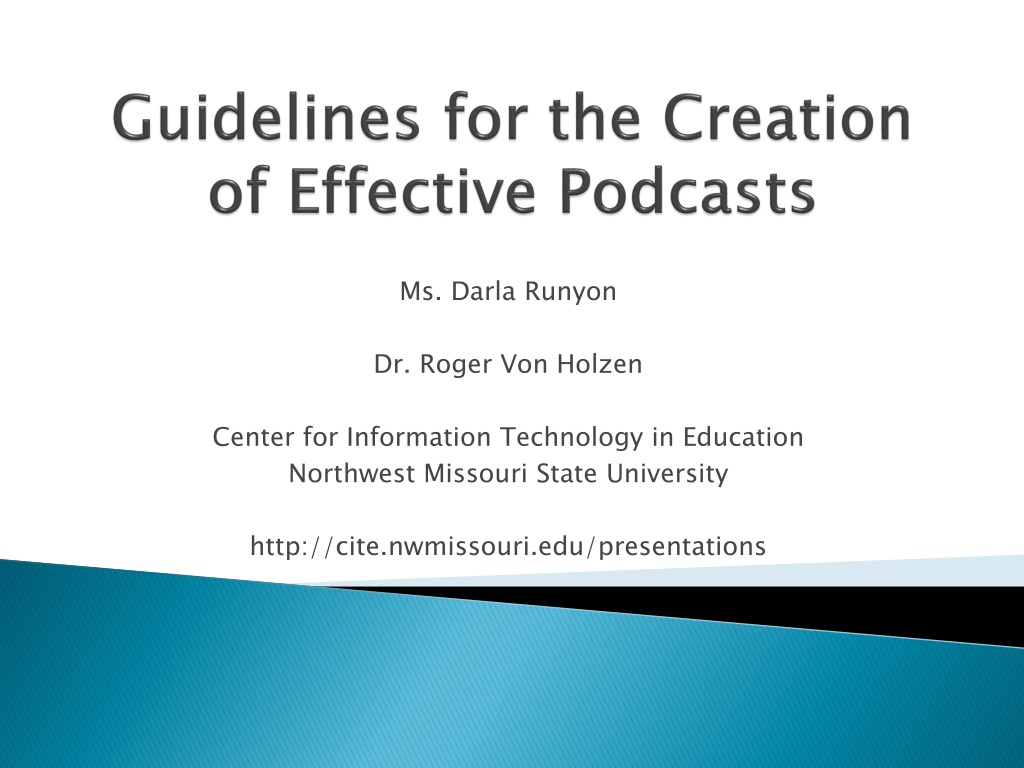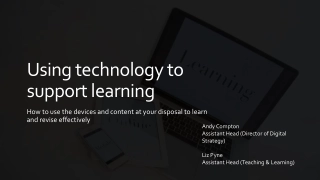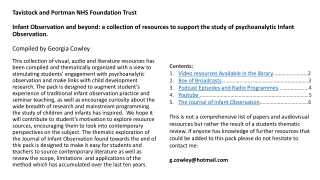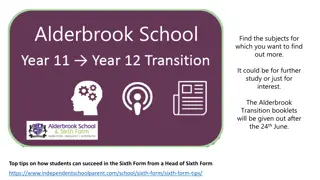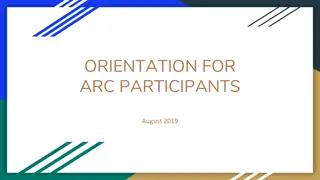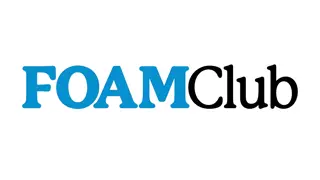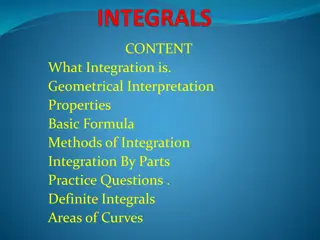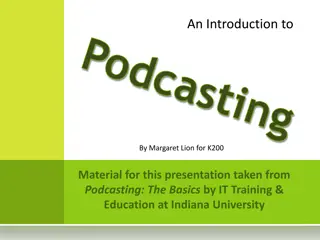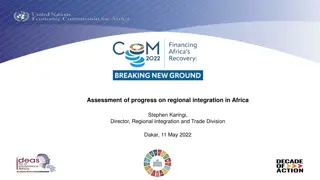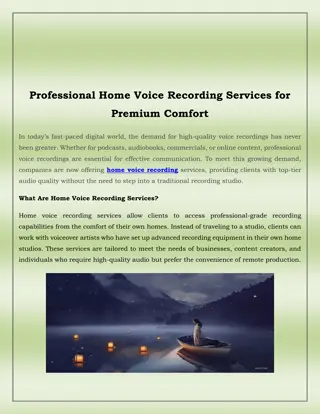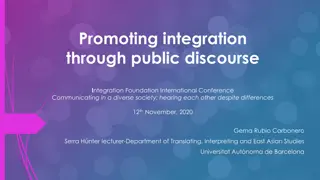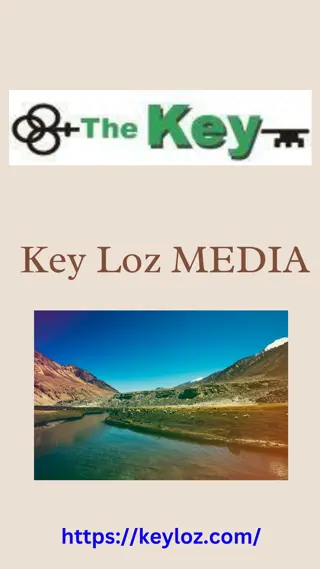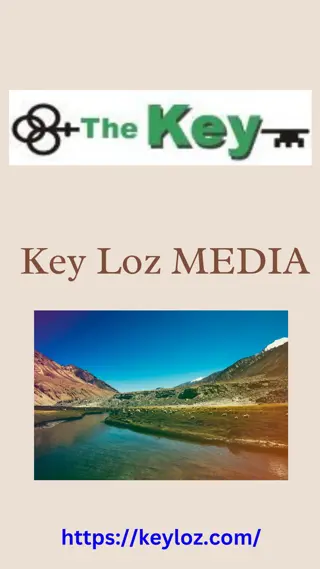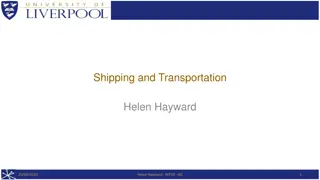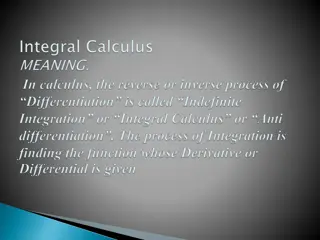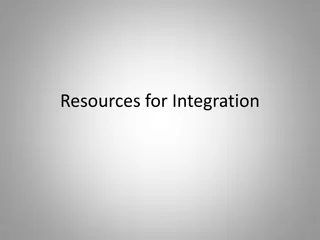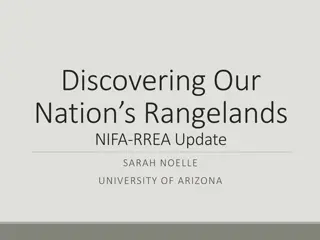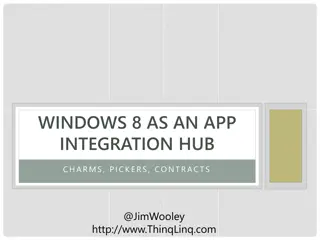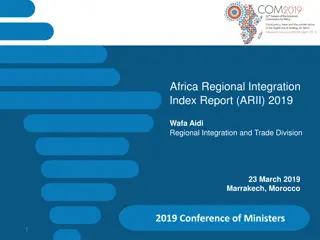Exploring the Integration of Podcasts in Education
The content discussed the widespread use of podcasts in various sectors and raised questions on the effectiveness of hour-long course content podcasts for students. It highlighted the importance of conducting student surveys and establishing campus procedures for recording and delivering podcasts. Additionally, it emphasized the need for technological support and capacity in classrooms for podcast integration.
Download Presentation

Please find below an Image/Link to download the presentation.
The content on the website is provided AS IS for your information and personal use only. It may not be sold, licensed, or shared on other websites without obtaining consent from the author. Download presentation by click this link. If you encounter any issues during the download, it is possible that the publisher has removed the file from their server.
E N D
Presentation Transcript
Ms. Darla Runyon Dr. Roger Von Holzen Center for Information Technology in Education Northwest Missouri State University http://cite.nwmissouri.edu/presentations
The term podcasts is heard everywhere Used by news broadcasts, faculty, and everyone else Only about 1% of Internet users indicated downloading podcasts daily Quality of podcasts Will students really listen to hour-long podcasts of course content?*
Student surveys Provides information on what students may find useful Conduct a pilot test among faculty and students using podcasts*
Establish campus procedure for recording and delivering podcasts Faculty technology support centers Outline of services Process for recording Training of faculty Support for faculty Develop an intellectual property policy Guidelines for use of technology*
Technology needs to be in place for Classroom use Individual use Software and hardware should be easily accessible for both faculty and students Provide sufficient hardware capacity to meet storage and access requirements and demands*
The concept of Podnology Listen to some sample podcasts Consider what is best presented in this format Content should be relevant to the listener*
The Mark Steel Lectures: Aristotle (5:56) http://www.youtube.com/watch?v=Qm8KiCu-By0 Randy Pausch Inspires Graduates (6:32) http://www.youtube.com/watch?v=RcYv5x6gZTA Randy Pausch Last Lecture: Achieving Your Childhood Dreams (1:16:27) http://www.youtube.com/watch?v=ji5_MqicxSo
The Most Boring Lecture About Global Warming Ever (9:33) http://www.youtube.com/watch?v=IffNaEQq1j0 Math 133 Week 3 Lecture 1 (6:59) http://www.youtube.com/watch?v=N9GLU7QxrVk Math Ninja : Fundamental Concepts of Analysis Lecture 1-2 (8:48) http://www.youtube.com/watch?v=b8Kap5xRCIo Physics 10 - Lecture 01: Atoms and Heat (1:13:59) http://www.youtube.com/watch?v=6ysbZ_j2xi0 Death Pt. 1 (10:00) http://www.youtube.com/watch?v=wEWYsaZkfhE Lectures: Great Expectations for Higher Education (1:26:54) http://www.youtube.com/watch?v=LWd-Mf6_ZLA
Start with course objectives Consider critical content and concepts How can a podcast best enhance objectives? Can any of the content be effectively delivered via a podcast? Can any of the concepts be effectively delivered via a podcast (vodcast)? Keep it simple write it out or have an outline to keep the conversation flowing Keep it short 2-3 minutes focused on critical points Avoid slang or jargon words*
Avoid complex facts and figures that can be hard to explain verbally Consider including background music if appropriate Make a transcription of the podcast available Label podcasts descriptively Keep titles consistent for serial podcasts*
Uses voices that are natural and interesting Strive for normal speech patterns Use a conversational or casual voice Use an interview style where appropriate to engage the listener Watch sounds levels when recording to keep volume even Make edits carefully they can be heard in headsets*
Add humor and personal anecdotes to keep the listener engaged Concentrate on the concept/content Avoid divisive personal comments*
Use an RSS feed to push the content to students RSS feed provides an easier access for students who are 21stCentury learners Logging into the course site takes additional time Link can still be posted in the site*
Large lecture classes Podcast critical content Podcast content students historically have not understood Lectures for students with special needs Mini-lectures Podcast mini-lectures outlining lab course information to be used before going to the lab Tests or other review material Podcast review sessions*
Subject matter expert or guest speaker Podcast an interview with these individuals Use a question and answer session Languages Podcast pronunciations for student practice Podcast phrases and sentences for practice Recruitment Podcast pertinent university information to potential students*
Archives Use podcasts as an archive of historical information and events Example: record podcasts of stories from World War II veterans for use in classes Student podcasts Allow students to podcast content, opinions, and stories which are pushed out to the class through RSS feeds FAQs Podcast focused answers for FAQs*
Languages Review and practice of sign language letters and words Recruitment Vodcast pertinent university information to potential students Student vodcast Allow students to podcast content, opinions, and stories which are pushed out to the class through RSS feeds*
Learning objects Vodcast Flash learning objects for review of critical concepts Speeches Vodcast student speeches for an oral communications course Allow students to critique these speeches*
http://www.gabcast.com http://www.podbean.com http://www.podcast.net http://podcastalley.com http://audio.search.yahoo.com/audio http://speakingofhistory.blogspot.com http://youthradio.wordpress.com http://pdtogo.com/smart*
Key point: Podcasts must play an integral part in the delivery of critical content and/or concepts Following these guidelines, an instructor should be able to produce a podcast that has a fair chance of being listened to by students*
Ms. Darla Runyon drunyon@nwmissouri.edu Dr. Roger Von Holzen rvh@nwmissouri.edu Center for Information Technology in Education Northwest Missouri State University http://cite.nwmissouri.edu/presentations
